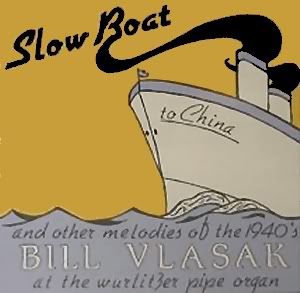 Yes, it's only a canvas sky
Yes, it's only a canvas skyHanging over a muslin tree
But it wouldn't be make-believe
If you believed in me
Without your love
It's a honky-tonk parade
Without your love
It's a melody played in a penny arcade
It's a Barnum and Bailey world
Just as phony as it can be
But it wouldn't be make-believe
If you believed in me
Harold Arlen's "Paper Moon" hopping rhythm and skipping melody are an infectious combination -- a world that is, like the song implies, almost too good to be true. Interviewed by Walter Cronkhite, lyricist and frequent Arlen collaborator Yip Harburg said his colleague's music had “a particularly wonderful creative quality-imaginative, new, fresh and having identification. His songs live! His songs seep into the heart of a people, of a nation, a world, and stay there." This song was part of a show called, "The Great Magoo," written for a cynical carnival barker who falls in love. The show may have flopped in the Thirties, but the song caught on in the Forties, thanks to both Benny Goodman and Ella Fitzgerald. Everyone from Bobby Darin to Marvin Gaye to Rufus Wainwright has recorded "Paper Moon," but let's hear Nat "King" Cole, and then his daughter, Natalie, share their takes.















